George Clooney has a masterpiece on his hands in the form of The Midnight Sky. It’s really two different movies that couldn’t be more connected. Clooney is a scientist, Augustine, stranded on an Arctic interspace communication facility that is having difficulty contacting an international spaceship on its way home after a successful mission to find a moon near Jupiter that could support human life.
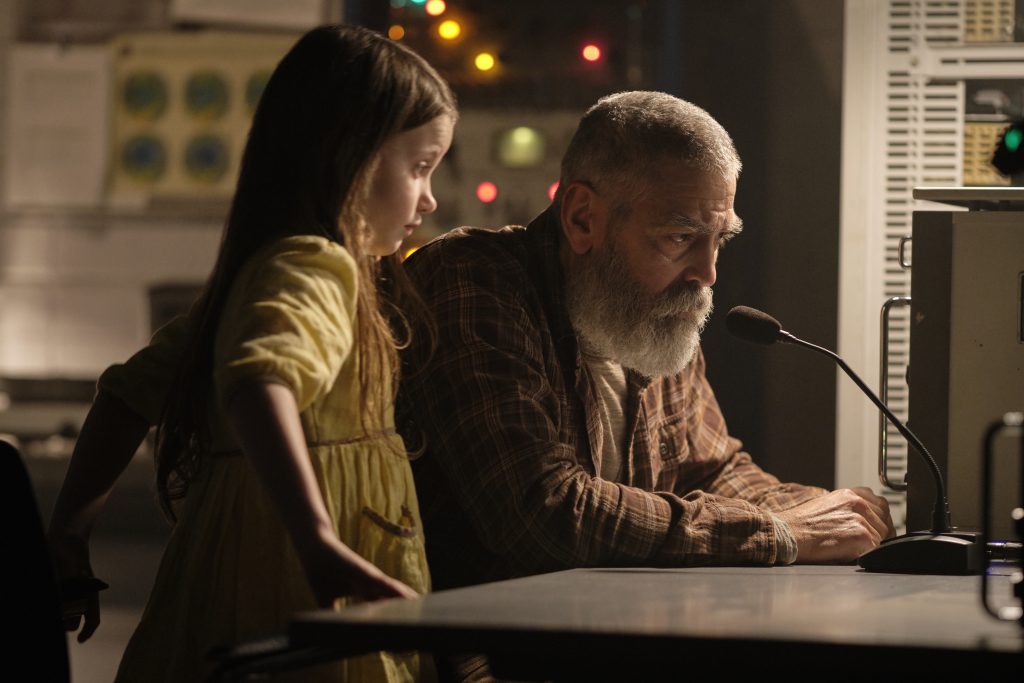
Meanwhile, up in space, the crew has not heard from ground control and is starting to worry about what is going on at home. In the end, it’s a message of hope, and that fire in the human spirit that will continue fighting for existence, even when the cards are hopelessly stacked against us.
Clooney directed and stared in the film, that also features Felicity Jones as one of the astronauts on the mission heading home with simultaneous bouts of hope and hesitation. The two sat down for a press conference recently for the Netflix film and waxed potential about its power.
Q: Could you ever have predicted that an international and deadly pandemic would shadow the entire planet as you’re telling a story about a world that is being decimated by a force not controlled by the human race—much like a certain pandemic?
George Clooney: When we first started talking about the film, we wanted to talk about what man is capable of doing to man and mankind. When I talked to Netflix about my take on it, I was talking about all of the anger and the hatred and all of the things that have been playing out in our lives, not just the United States—although certainly in the United States—but all over the world. And how if you played that out for 30 years, it’s not inconceivable that we could, one way or another, if you’re denying science, its climate, if it’s anger, we could be blowing ourselves to kingdom come. That it’s not inconceivable that we blow it in a big way. And so, to me, the idea was to have that conversation about what we’re capable of doing.
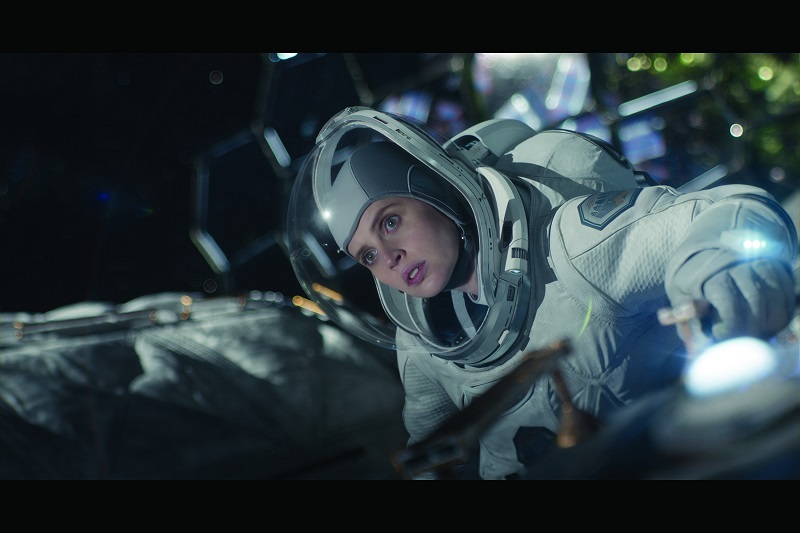
Q: I read that the pandemic started its attack on humanity, just as you started filming. How did that effect your ability to make this story come to life?
George Clooney: The pandemic made it clear that what the story really was enveloping was our desperate need to be home and our desperate need to be close to the people we love and in communication with the people we love and near them and how difficult that struggle is to communicate with one another, like we’re doing now in the weirdest possible press conference I think we’ve ever done. That was the idea of it. The idea was suddenly that these themes, unfortunately, are relative, but no one counted on them to be completely like this.
Q: What do you think are the prevailing themes that are interwoven in The Midnight Sky?
George Clooney: After we finished shooting, the pandemic came around and it became clear that what the story really was enveloping was our desperate need to be home.
Q: Felicity Jones, what was—besides working with George—the big impetus to be a part of this picture?
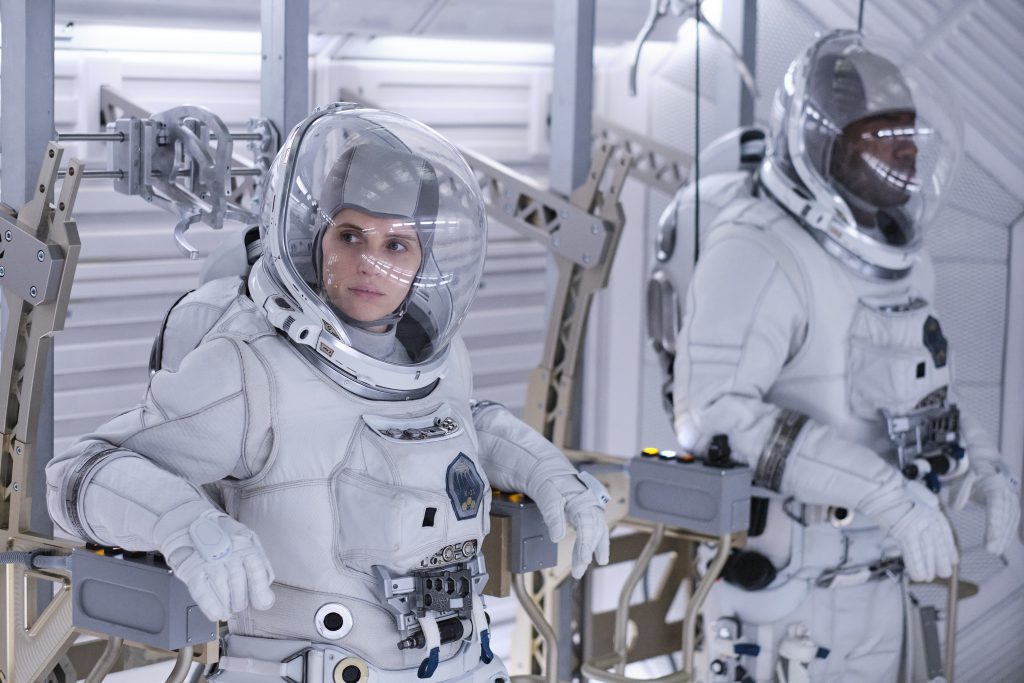
Felicity Jones: What I always loved about the film and reading the script was that it had both a macro level of being a film about some really massive, huge issues, asking existential questions, asking about the meaning of life. What are we doing here? Why are we here? What do we value? Interestingly, these are all the questions that we are asking ourselves in this strange epoch that we find ourselves in. So, it had these broader brushstrokes. Then. at the same time, it was a very intimate relationship drama about trying to forge connection. [It’s] about family and about being a parent. And so, the fact that it moved from the big to the small [screen] and did it so well it is part of the reason that I wanted to do it. That it was an entertaining propulsive action movie at the same time.”
Q: Now, Felicity became pregnant as filming commenced, how was that handled?
George Clooney: We tried to deny [Jones’ pregnancy] for a minute. We tried to pretend that it didn’t happen. So, we were shooting around her and shooting things three times, we were going to do head replacements. Then it really came down to the idea that the best versions of things are when you accept them, and you don’t see them as problems.
Q: Did including Felicity’s pregnancy enhance the story at all, by chance?
George Clooney: “Once we decided, well, people get pregnant, it happens, so suddenly, it became Wilber—who’s her son’s actual name, who by the way, should get screen credit, ‘introducing Wilber’—became a character to us. The crew of the ship, all of these five wonderful actors sort of joined together in protecting her. It became a family. It became something that was important. So, we could write scenes about naming the kid or doing the ultrasound. To me, that suddenly became infinitely more hopeful in there, and there was a real fight for the idea of whether or not this whole thing of mankind is worth the struggle, and you feel as if, when you see that, it is.
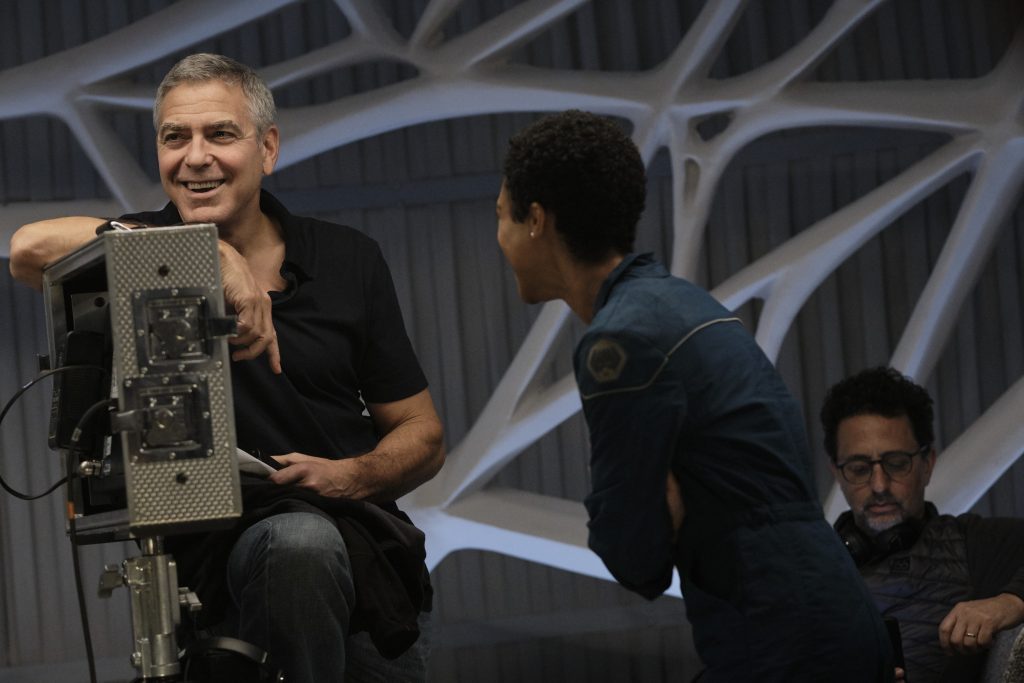
Q: Is there a lesson in filmmaking there for you?
George Clooney: Yeah, the best versions of things are when you accept them and don’t see them as problems. [It was] infinitely more hopeful and drew everyone together.
Q: It struck me that this is two different movies. One in space, and one in isolation with Augustine desperately trying to get in touch with the ship. Was it shot as such?
George Clooney: We were shooting two different movies. It was like doing The Revenant for the first half of the end of the last year and then doing Gravity for the second half.
Felicity Jones: What I always loved about the film and reading the script was that it had both a macro level of being a film about some really massive, huge issues and asking existential questions asking about the meaning of life. What are we doing here? Why are we here? What do we value? And interestingly, these are the questions that we are asking ourselves in this strange epoch that we find ourselves in. So, it had these broader brushstrokes, but then at the same time, it was a very intimate relationship drama about trying to forge connection and about family and about being a parent. It has been extraordinary just how relevant it has become.”
Q: What do you hope audiences take away from the experience that is The Midnight Sky?
George Clooney: We wanted to talk about what man was capable of doing to man and mankind, and I was talking to Netflix about my take on it. All of the anger and the hatred, and all of the things that have been playing out in our lives, not just the US but all over the world. And also, by the way, Clooney added, “if you finish the film without the last five minutes, in many ways it’s a film about regret because of the character that I play. But he gets redemption, and I think redemption is a really big, important thing that washes over us and gives us hope and all of those things. I found it to be a very hopeful film.”
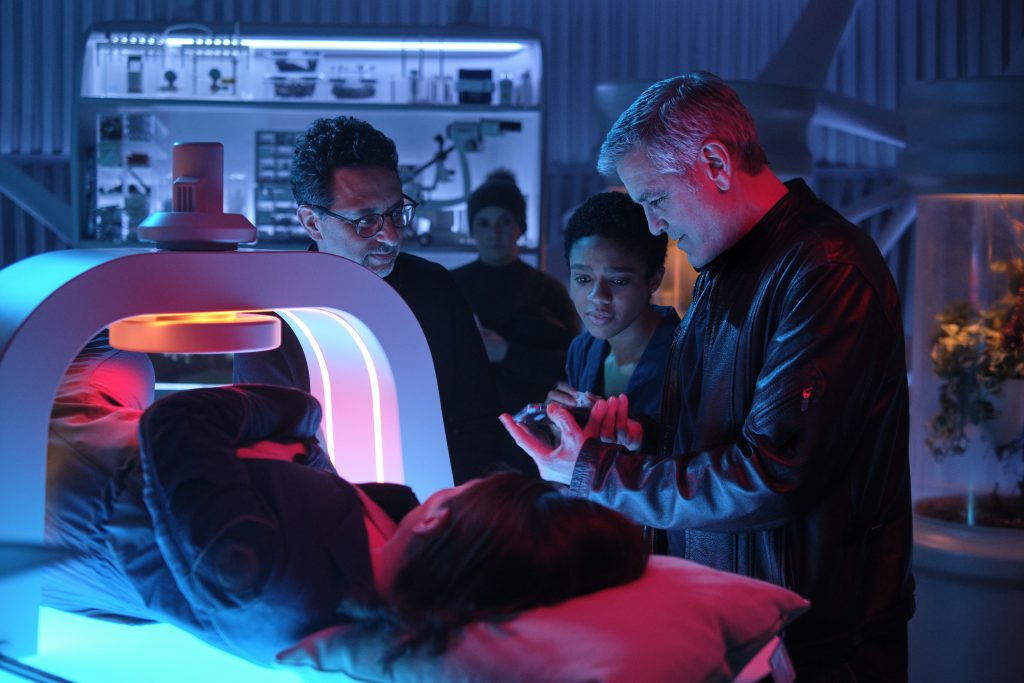
Q: When asked what he missed most about life, pre-Covid, he didn’t hesitate.
George Clooney: I miss my parents, you know. I miss my sister, and I think Amal misses her parents … We’re looking forward to getting through this part.

